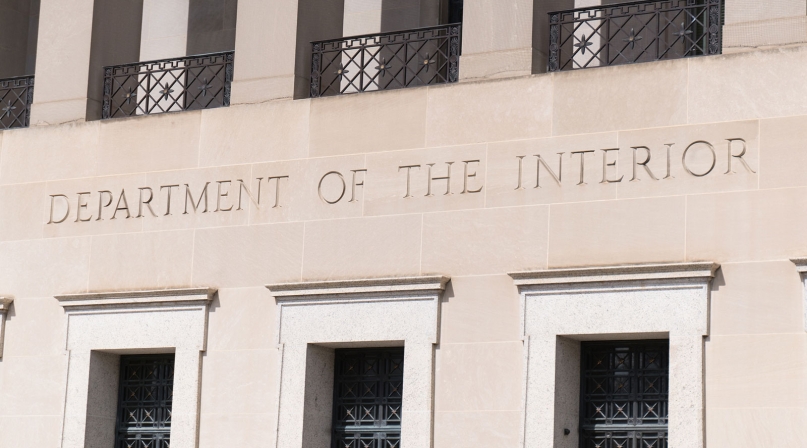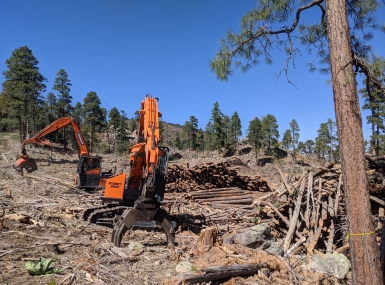U.S. Bureau of Indian Affairs releases proposed rule to streamline lands into trust process for tribes
Author

Maxx Silvan

Paige Mellerio
Upcoming Events
Related News

Key Takeaways
On December 5, the U.S. Bureau of Indian Affairs (BIA) published its new proposed rule on the federal lands into trust process (25 CFR 151) for tribal governments and individual tribal members. The lands into trust process is a set of procedures in which BIA and the U.S. Department of the Interior acquire the title to land and holds it for the use and benefit of tribes or tribal members. This process was established by the Indian Reorganization Act of 1934 (IRA), which gave the Secretary of Interior general authority to take lands into trust, and later interpreted by the U.S. Supreme Court in the case of Carcieri v. Salazar, 555 U.S., 129 S. Ct. 1058 (2009). The U.S. Congress has not enacted legislation prescribing the process in which the Secretary places land into trust therefore this process has been guided by federal regulations and court rulings.
In general, the proposed rule provides several major changes to the existing process. First, the rule directly states that the Secretary of the Interior’s policy is favorable towards taking land into trust to support the welfare of tribes. Previous iterations of the rule had not expressed the Department of the Interior’s stance on this process. Second, the rule speeds up the process by requiring BIA to issue a decision on a land into trust request within 120 days of the submission of a complete application package. Counties are concerned that this quick timeline does not give adequate time to truly understand the tax roll and jurisdictional impact on affected counties.
The proposed rule also intends to make the process more efficient by eliminating certain previous criteria and establishes several presumptions to streamline four different forms of acquisitions: (1) on-reservation, (2) contiguous to reservations, (3) off-reservations and (4) initial Indian acquisitions. The “initial Indian acquisitions” category is newly created by the proposed rule to make this process easier for tribes without any land in trust. Lastly, the rule sets forth a regulatory process to determine whether a tribe was “under federal jurisdiction” in 1934, as required by Carcieri v. Salazar.
BIA is currently seeking input on these changes from interested stakeholders. Written comments are required to be submitted by March 1, 2023, and additional information on this process can be found here.
Counties recognize and respect the tribal right of self-governance to provide for tribal members and to preserve traditional tribal culture and heritage. In a similar fashion, NACo recognizes and promotes self-governance by counties to provide for the health, safety, and general welfare of all members of their communities. To that end, NACo supports active participation by counties on issues and activities that have an impact on counties and the improvement of the lands into trust process, including revision of the Indian Reorganization Act of 1934, to require:
- Adequate advance notice of applications,
- Actual meaningful consultation (including providing counties 120 days to respond to applications and requiring the Department of the Interior/Bureau of Indian Affairs to respond within 90 days, in writing, to such comments explaining the rationale for acceptance or rejection of those comments), and
- To the extent constitutionally permissible, the consent of the affected counties.
NACo also opposes administrative action or a legislative “quick fix” to overturn the United States Supreme Court decision in the case of Carcieri v. Salazar. NACo calls on Congress to address any Carcieri issues as part of a comprehensive examination and congressionally enacted reform of the fee land into trust process.
NACo will continue to monitor updates from BIA on this process and will keep members apprised of any new developments.
Related News

Counties search for footing amid federal workforce cuts
Staffing reductions in the federal land management agencies are upsetting the intergovernmental balance in public lands counties.

County Countdown – March 25, 2025
Every other week, NACo's County Countdown reviews top federal policy advocacy items with an eye towards counties and the intergovernmental partnership. This week features budget reconciliation, FY 2025 funding and more.

NACo Legal Advocacy: San Francisco v. Environmental Protection Agency (EPA)
San Francisco v. Environmental Protection Agency (EPA) has implications for the ability of county governments that own and operate wastewater treatment facilities to comply with National Pollutant Discharge Elimination System (NPDES) permit requirements.